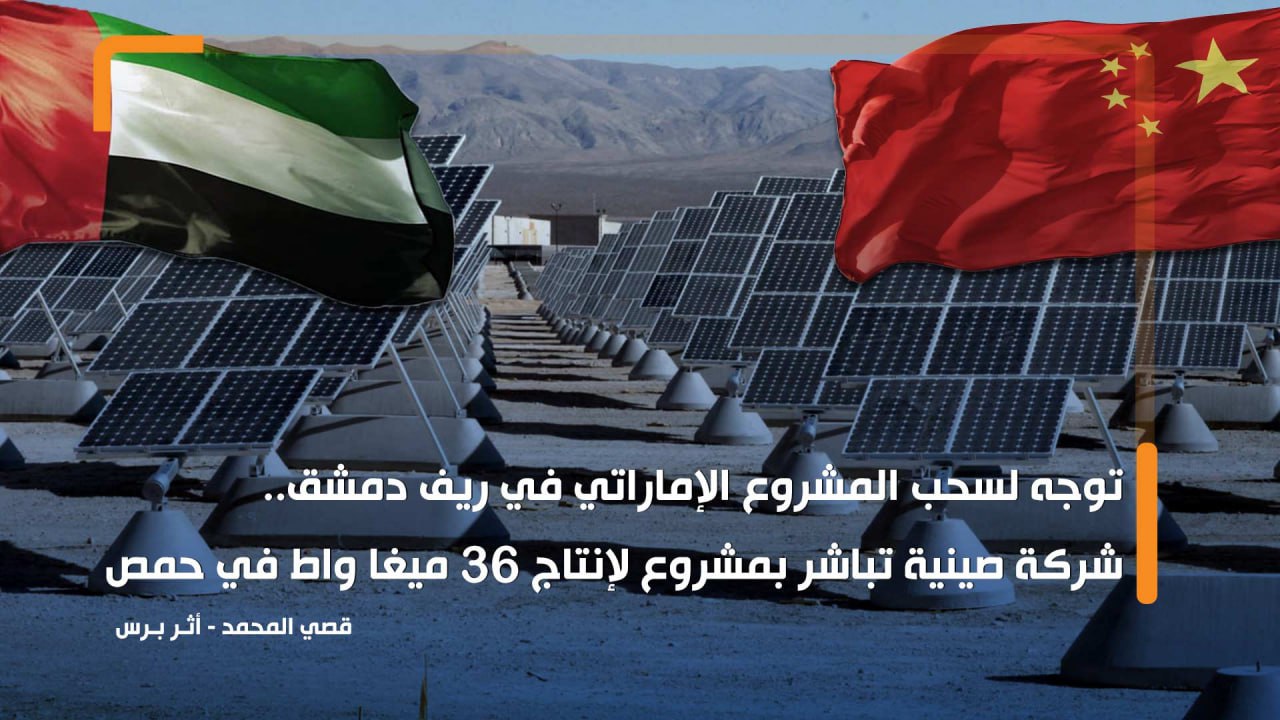Earlier this week, the Ministry of Electricity authorized a Chinese company, represented by an approved agent in Syria, to commence the implementation of a photovoltaic project aimed at generating 36 megawatts of electricity using solar energy within a maximum time frame of 24 months. This project, costing over 489 billion Syrian pounds, will be executed in six phases.
Regarding the project’s scope, nature, and location, Omar al-Burijawi, the Director General of the General Organization for Electricity Generation, informed Athr Press: “We recently issued a directive to one of our contractors, serving as an agent for a Chinese firm, to initiate a photovoltaic project with a capacity of 37 megawatts in the Jandar area of Homs countryside.”
Burijawi highlighted the contractor’s demonstrated commitment, stating they were mobilized to the worksite approximately four days ago. He expressed optimism about the contractor’s potential for delivering promising results in the future. He emphasized that projects with full funding receive priority, streamlining the implementation process according to the planned stages.
Expected savings from the project
According to experts monitoring the energy sector, generating 36 megawatts of electricity through photovoltaic collectors necessitates installing a minimum of 66,000 panels, each with a capacity of 545 watts per receiver.
As per expert analysis, the anticipated annual electricity output from the project is around 60 million kilowatt hours. This substantial output translates to significant savings for the government, estimated at about 15,000 tons of fuel per year, along with a reduction in carbon emissions by approximately 42,000 tons.
Electricity is moving to withdraw the 300 megawatt project from a foreign company:
In a related development, due to the failure of a project that was initiated over two years ago with the UAE-based company International Energy Investment, Athr Press has learned from reliable sources within the Ministry of Electricity about ongoing discussions regarding the potential withdrawal of the project. Signed on November 11, 2021, the project involved collaboration with Emirati companies to establish a photovoltaic power station with a capacity of 300 megawatts in the Wadi al-Rabeeh area, near the Tishreen power station in Damascus countryside.
The agreement between the parties outlined the construction of the power station on a turnkey basis, with 100% financing secured through quarterly installment payments over a 10-year period. These payments were structured to commence after each section of the project was commissioned, with a two-year grace period. However, due to delays and deviations from the planned timeline, there is a growing inclination to terminate the project.
This article was translated and edited by The Syrian Observer. The Syrian Observer has not verified the content of this story. Responsibility for the information and views set out in this article lies entirely with the author.


